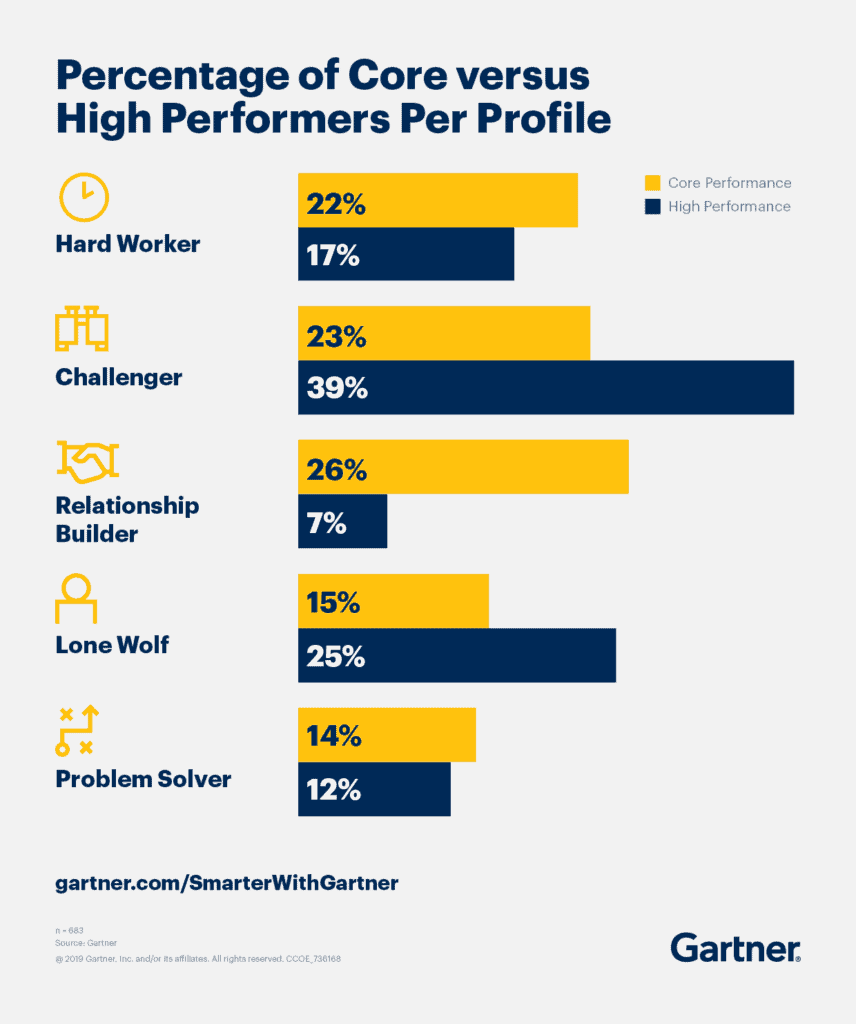Your Key Competitive Advantage In Challenger Sales…
If you work in (around, behind, below or near) B2B sales, you’ve probably heard of the Challenger sales model.
Yes I’ve heard the term – but what’s it all about?

Identified about a decade ago by Brent Adamson and Mattew Dixon at Gartner, the Challenger model came out of one of the largest studies ever conducted in the field of sales. Adamson and Dixon knew that, for many organizations, a few super-star sales performers were driving the majority of revenue. They wanted to know – what do these star performers do differently and how can those actions be translated to other reps? To figure this out, Gartner surveyed over 6,000 sales reps and identified star and average performers across 44 different attributes.They documented the findings in their 2011 book, The Challenger Sale: Taking Control of the Customer Conversation, which breaks down the predominant types of sales reps, their characteristics and rates of success. All had strengths, but the winner (by a long shot) was what they called the “Challenger”.
They found that the individual star performers closing the most (and most complex) sales and on any given team were all using a similar Challenge method.
So what are Challengers doing?
Challenger reps literally challenge potential customers, employing a deep understanding of their customers’ businesses to deliver new insights and disrupt the status quo. They bring new ideas to the table–like how to save money or avoid risk– that the customer hadn’t previously considered or fully appreciated on their own.
These insights help customers reevaluate areas they took for granted about their own operation, and rebuild their approach guided by the challenger’s insight. The research found that it was these insights that set the selling organization apart from others and had the largest impact on customer loyalty, ahead of brand, product, service or even price.
In the words of Adamson and Dixon:
“Challengers are world-class teachers. They win not by understanding their customers’ world as well as the customers know it themselves, but by actually knowing their customers’ world better than their customers know it themselves, teaching them what they don’t know but should.”
Out of all the sales rep styles identified in the study (Hard Worker, Relationship Builder, Lone Wolf and Problem Solver) The Challenger model takes a uniquely risky approach. Not all customers will take kindly to disruption – and if you’re going to try it, you better have the knowledge and insights to back it up. It’s not a method for people-pleasers or half-steppers, it takes considerable confidence.
How do I become a Challenger?
Challengers don’t just appear fully-formed out of nowhere, they are made.
Sure, some innate confidence is a great leg-up, but it’s just the beginning. The key to success in the Challenger sales model is knowledge. A thorough and up-to-date understanding of your own industry as well as those you transact with is crucial. Not just facts and figures, but a real, deep understanding of the processes, systems, issues and obstacles. Knowledge is fuel for the critical thinking that leads to genuine, novel insight. And as a Challenger, that insight is really what you’re selling.
Knowledge can be acquired any number of ways, some are just more efficient than others. From our point of view, whatever the subject, you can’t beat going directly to the source: Industry Experts. They combine technical expertise with comprehensive practical understanding in a way that can only come from real experience. They’re steeped in the inner workings, current trends and obstacles facing their industry. They teach you what you really need to know.
In short: They know their stuff!
TL;DR Wrap-Up
Today’s best sales reps, whatever their field, are selling change. Their mandate is to teach customers something new and compelling, and provide reasons for them to act. To do that they need practical market knowledge. These days, the accelerated rate of change means keeping up with most industries is a near impossible task without ongoing education. The best source for that ongoing education is successful industry experts.